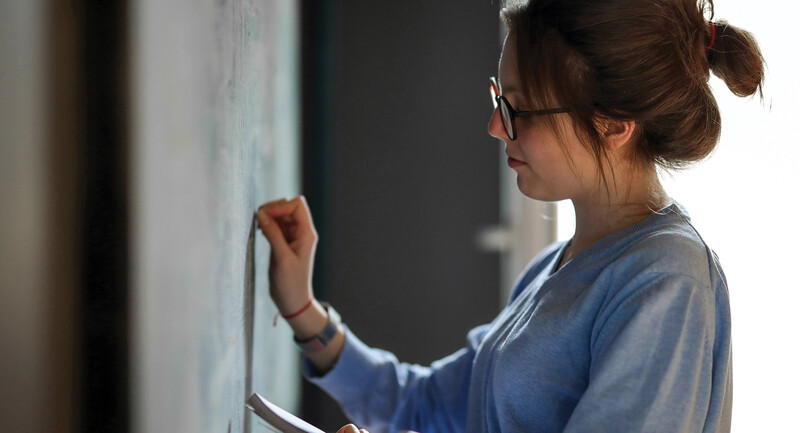Though always demanding, it seems to me that teaching is harder these days than it has ever been. The reasons are many, but the result is teachers who feel weighted down and oversubscribed. So it is interesting that many conversations about adding an emphasis on social-emotional learning (SEL) are not met by educators with "Here comes another thing" so much as, "I think this could be important for my students," who are also observably weighted down.
I agree that an emphasis on the affective and social well-being of students and their teachers could benefit teaching and learning and contribute to the overall health of schools and the people in them. I worry, though, that SEL can become a packaged curriculum taught as another subject, rather than a way of being. Attending to the affective needs of students is foundational to learning success, and attending to the affective needs of teachers is also foundational to teaching success. Here's an example.
SEL as a Way of Being
I spent an afternoon not too long ago with a teacher from Utah—let's call her Mary Ann—who told me about her students and her approach to teaching. Here's what I took away from our conversation.
Mary Ann loved her work and spoke with something like reverence when she described how teaching helps her create with her students a microcosm of the world she wishes for them when they move beyond the classroom door. Knowing her students deeply is number one on her agenda, followed closely by helping the students know one another as human beings who each bring something irreplaceable to the classroom.
She thought of curriculum as a window on the world and felt she could shape learning experiences so students' views from the window were rich with the possibility of discovery. She thought of instruction as a journey through which her students could learn to trust the world, one another, and themselves. Conversations with her students—individually and as a group—always centered on the importance of those elements.
Mary Ann modeled good listening and taught her students how to listen with total attention—how to hear beyond the words, how to give oneself fully to work and strive for excellence, and how to support one another gently and unselfishly.
Of course, there were problems in a classroom filled with young lives. That, she helped her students understand, was inevitable. The important thing in the face of problems—even perplexing and hurtful ones—was to use the human capacity to act on those problems in ways that lifted one another up and ultimately made people better.
Parents told Mary Ann how different their children were at home after being in her class. They were more aware, thoughtful, constructive, forgiving, and determined to do their best work. The students shared with her moments of awareness and satisfaction in their growth. Other teachers commented on particular students in her class who seemed remarkably more mature. While Mary Ann saw those things to be true, she was puzzled at the idea that something unique was happening in her classroom.
When Things Get Off Track
Then one day, a group of students in the class did something that was very painful to some other students in the class whom the first group felt had wronged them. Both the speech and action of the offended students was such a deviation from the "ethics of being" that Mary Ann thought her class shared, that she was stunned and uncertain of how to move ahead. She talked with the class as recess was nearing that day. She told them that she wanted to think before they had a conversation about what had happened and that she hoped they would do the same so they could bring their best thoughts when the time was right.
Not on playground duty that day, she worked in her classroom while her students were outside. Just before recess was ending, she saw several of them standing in the doorway. "We know you're hurting," they told her, "and we're hurting, too. So we called a class meeting on the playground and talked about where we went wrong and what we would need to do to regain one another's trust and to regain your trust. We're here to share our ideas with you."
Clearly something powerful was going on in that classroom.
Reflecting on the Reflection
I've been doing a lot of reading on personalized instruction. One article caught my eye because of its title—"My Personalized Learning Approach Isn't about Tech. It's about Dignity." It was written by Valerie Gates, another teacher from Utah who, about midway through her adult life, had switched careers to take a teaching job in a high-needs high school. Her students were largely students of color, mostly eligible for free and reduced-price lunch. She heard from many sides that she wouldn't last in the school, that the kids would eat her alive, that she would quit abruptly. She has now been at that school for 14 years. She was Utah's Teacher of the Year in 2017.
Gates writes at length about how she works incessantly to find commonalities between herself and her students and among her students. With only a few sentences to go in the article, she raises an obvious question, "So, how does all this relate to personalized instruction?" For her, the answer is clear: "Discovering and developing commonality between student and teacher leads to maintaining dignity in the classroom. If we truly consider the dignity of our students to be an absolute priority, everything else falls into place …. In the end and from the beginning, it all comes down to human dignity."
Maybe something like this is what draws many of us to the idea of social-emotional learning. Maybe we sense that the pressures that bear heavily on us as teachers, on our students as developing human beings, and on our world turn our minds away from the reality that we can neither teach well, nor learn well, nor live well unless our fundamental human needs are attended to in the process.
If SEL could help us adopt and retain that focus, it would be a good and transformative thing. That focus is what characterized Mary Ann's teaching. Sensitivity, appreciation, respect, and dignity were the compass points of her work with students, and she taught her students to navigate with that compass as well.
Valerie Gates, too, understands. In the end, and in the beginning, emotional and academic well-being stem from a community in which students learn to recognize one another's similarities, appreciate one another's differences, and treat one another with dignity. SEL is not a program or curriculum, but a way to be together.







